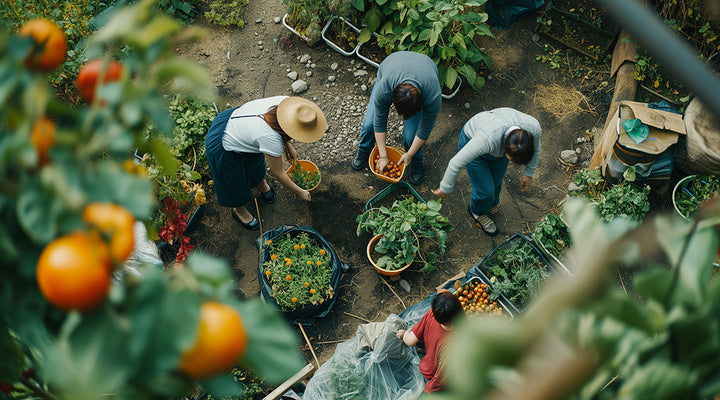
Please Join Us In Welcoming Cinta To The Lifeboost Family
Today we have some exciting news to share with you! An introduction, if you will, to welcome our newest Lifeboost family member.
Many of you are aware of the fact that most Lifeboost coffee, our classic roasts for instance, is grown at high elevations within the mountain rainforests of Central America.
But, as we’ve learned of other sustainably grown, specialty grade, organic coffees grown on small plantations around the world, we’ve partnered with a few other farmers to make these rare, exquisite varietals available to you, our customers.
And, in doing so, we’ve learned of specific needs within these areas as well.
In Africa, for instance, we’ve been able to donate to multiple charities helping provide school lunches, clean water, shelter for animals, aid for survivors of human trafficking, and so much more…including adopting Coffee Bean, an endangered giraffe in Uganda.
And now, while many of you already love our Java Blue coffee from Indonesia, we’re very excited to introduce to you a new love from this region, Cinta!
Cinta is a Sumatran tiger…tigress to be exact.
We recently adopted Cinta as part of an effort to protect her, the territory where she lives, and the prey she relies on for food.
Cinta means love in Indonesia, so today we’d like to spend some time loving this majestically beautiful creature by learning about her, her home, and the dangers she faces without greatly needed intervention.
An Introduction To Cinta, Lifeboost’s Newest Family Member

Cinta is one of approximately 300 Sumatran tigers existing in the wild today.
Like all Sumatran tigers, she is the smallest of all tiger species, weighing up to only 300 pounds.
Sumatran tigers have a unique bearded or maned appearance, and their stripes are more narrow than other subspecies of tigers.
Just like human fingerprints, the stripes on all tigers, including Cinta, are unique to each individual tiger.
The classic orange coloring in their fur is darker than other tiger species to help them blend into their tropical surroundings.
And, while Cinta’s whiskers aren’t unique, this feature being common to all tigers, they aren’t any less spectacular.
A tiger’s thick, long whiskers actually act as an extension of their nervous system.
They can detect the slightest change in the air to alert the presence of a food source or danger within their surroundings. And, these long, beautiful facial features can allow a tiger to judge the distance between two places and even help them navigate through tight spaces, especially at night.
Due to her shy nature, Cinta and others within her species seek to avoid people. But, make no mistake about it, Sumatran tigers aren’t shy when it comes to other animals in their habitat.
Like all Sumatran tigers, Cinta is an apex predator, a carnivore surviving on a diet of meat with primary food sources such as wild boar, some species of deer, and even fish.
Yes, unlike common house cats, these big cats actually like to swim.

And, Sumatran tigers are very strong swimmers as they’re equipped with webbing on their paws.
One commonality these tropical cats do share with the felines we enjoy as pets is their love, and need, for sleep. Most Sumatran tigers, like Cinta, enjoy napping/sleeping for anywhere between 18-20 hours a day.
Regarding the noises made by these creatures, we often associate tiger sounds with loud, ferocious roars. And, Sumatran tigers are no different here, with their roars, an aggressive form of communication, projecting as far as 2 miles!
But, aside from roaring, Sumatran tigers can vocalize in many other ways as well.
This means Cinta can also snarl, hiss, and chuff, with chuffing being a way she expresses contentment.
Then, another surprising fact about tigers is that they actually do not have a very keen sense of smell, which is why this sense isn’t generally used for hunting.
Instead, a tiger’s sense of smell assists them in communicating with other tigers, setting territorial boundaries, and alerting potential mates of their reproductive status.
Being a tigress, Cinta is fertile for roughly 5-7 days each month, with the average gestation for a Sumatran tiger lasting approximately 100 days.
While five to six cubs can be born to a tigress, it is more common for a Sumatran tigress to only birth two to three cubs. Unfortunately, it is likely that only one or two of these cubs will survive their first two years of life.
Sumatran tiger cubs are born blind and only weigh about 3 pounds at birth. And, for their first six months of life, these cubs depend solely on their mother, making protection efforts for Cinta and her species even more important.
Protecting Cinta ThroughThe International Tiger Project

Cinta’s home extends from the hilly southern region of the Bukit Tigapuluh National Park into the lowland area of the ex-logging concession known as Hatma Hutani.
In these regions, the International Tiger Project is involved in numerous efforts aimed at protecting Sumatran tigers from the many dangers they face.
What are those dangers, you ask?
There are two primary threats to Sumatran tigers: poaching and habitat loss.
Poaching

Poachers, or hunters, often set traps or shoot tigers like Cinta for their skin and their bones, both of which are commonly used in Asian traditional medicine.
What does this mean for Sumatran tigers?
This means a real risk of being caught in a painful metal trap.
This means fractured bones, torn flesh, and for adult female tigers, the inability to reach young cubs which rely on their mothers for protection, feeding, and training.
And, this also means a diminished food supply when the prey these tigers rely on for nourishment are also killed in traps and snares set by poachers.
With only a few hundred Sumatran tigers left in this world, the threat of being hunted/poached vastly affects these populations.
The International Tiger Project helps here through donors and adoptees, funding their efforts in:
- patrolling thousands of acres of these rainforest ecosystems both day and night
- removing snares and traps set by poachers
- setting camera traps along well known tiger trails to identify poachers, working alongside local law enforcement to provide needed evidence to stop such offenders
- monitoring the health and wellbeing of protected tigers through camera footage (Remember, Cinta and her species are commonly too shy for in-person monitoring.)
- educating locals about poaching laws, the dangers of consuming wildlife, and the threat of their extinction
Habitat Loss

To put it bluntly, the Indonesian habitat for Sumatran tigers is disappearing at an unprecedented rate.
Drought, forest fires, and illegal logging all degrade Cinta’s home, threatening extinction for this absolutely awe-inspiring species.
Then, as palm oil and pulp paper plantations expand, this translates to a loss of habitat as well.
You’ve likely read information we’ve shared previously about the threat mass marketed, hybrid, sun-grown coffee plantations pose to wildlife as these farms deforest areas at an alarming rate, and this is happening in a similar way (with a different product) to the regions Sumatran tigers call home.
- Between 1990-2010 nearly 37% of Sumatra’s total primary forest was lost due to plantation expansion.
- From 2000-2012, 16.5% of tiger populated forests declined in this same region.
- The hills and lowland regions, the precise location Sumatran tigers call home, declined 21.1% during this same time due to palm oil plantation expansion.
More recently…
- Nearly 90% of the Sumatran tiger habitat has been claimed by palm oil plantations. Palm oils are used in the production of more than 50% of consumable goods, in everything from shampoo to cereal.
- Every hour, enough rainforest habitat is deforested for palm oil plantations to cover 300 football fields.

As these areas are deforested, it makes the ‘job’ for poachers much more simple, pushing precious wildlife out of their habitats into smaller spaces where these hunters can more easily trap them.
The International Tiger Project, through funded efforts, works to protect and preserve these areas of forest that Sumatran tigers desperately rely on for survival.
But, aside from supporting such organizations, you can help at home even through simple, everyday choices.
Most of you know, when choosing to drink Lifeboost Coffee, a portion of our proceeds support organizations that work to protect endangered regions (and their inhabitants).
But, when drinking Lifeboost you also make the choice to opt for a product that incorporates sustainable farming methods, working with the land instead of against it, preserving ecosystems through chemical-free growing methods, and never robbing wildlife of the homes they so desperately need.
In the case of Cinta and her entire species, palm oil, rather than coffee, is the home-robbing culprit, necessitating the choice for sustainably grown (and healthier) options as opposed to palm oil.

So, when looking to avoid products made with palm oil, it’s important to know the common labels this habitat-robbing product can be listed as. Palm oil is listed on product labels as anything with the word palm in it as well as:
- Stearate
- Stearic acid
- Sodium Laureth
- Sodium Dodecyl Sulfate
- Lauryl Sulphate
- Palmolein
- Glycerin
- Cetyl alcohol
- Cetyl palmitate
- Palm fruit oil
- Palm kernel oil
- Vegetable glycerin
- Vegetable oil
- Palmitic acid
- Emulsifiers (422, 430-36, 470-8, 481-3, 493-5)
- Sodium Lauryl Lactylate
- Sodium Lauryl Sulfoacetate
- SLS and SLES
As you can see, palm oil can be hard to identify with so many names, and it bears repeating that this forest-robbing oil is found in more than 50% of all processed/packaged food (as well as many lipsticks, soaps, and shampoos).
For your health and the health of crucial ecosystems, specifically those where our newest Lifeboost family member, Cinta, calls home, choosing sustainably farmed foods and products has never been more important.

A Welcome Gift For Cinta

In closing, I’d like to propose a challenge, actually let’s call it a gift for Cinta and her species…
Join us in welcoming this magnificent, incredibly majestic, beauty to our Lifeboost family by making a few simple, easy, even delicious choices when it comes to your lifestyle that can aid in preserving her home and species for years to come:
- Start by swapping one non-food product in your home that contains palm oil for a more sustainably grown option. Personally, I’ve chosen to ditch my shampoos, conditioners, and soaps that contain palm oil (sodium lauryl and laureth sulfates, or SLES and SLS) and began specifically seeking products that do not contain these palm oil ingredients.
- Then, seeking to eat whole, unprocessed foods will not only improve your health immensely, but these obviously do not contain palm oil. For packaged foods, try swapping margarine for real butter or choose organic heavy cream for your coffee instead of traditional heavy cream which contains palm oil.
- And, possibly one of my most delicious and healthy swaps…choose to drink sustainably farmed Lifeboost coffee.
Lifeboost coffee is not only sustainably grown, promoting biodiversity in our growing methods rather than robbing ecosystems of health and habitat, but our proceeds also seek to help our planet by supporting organizations like the Rainforest Trust, EcoCart, and enlarging our Lifeboost family by adopting endangered species such as Coffee Bean, an endangered Ugandan giraffe, and Cinta an endangered Sumatran Tiger.
These simple efforts can help to stop deforestation and deadly poaching/hunting as well as monitor the health and wellbeing of the most vulnerable wildlife populations.
So today, we don’t want to simply welcome Cinta to our family, we want to ensure she has a long life and a grand lineage with healthy cubs that will enjoy the Sumatran forests for generations to come.
Cinta, today we welcome you! May your name inspire us to love you well, doing our part to ensure your home, and your species, are safe and protected!
There’s nothing sweeter than a cup of bitter coffee
Dark Roast to Bright your Morning
Check out Lifeboost Coffee Dark Roast.

Becky is a mother, educator, and content writer for Lifeboost Coffee. She has had three years’ experience as a writer, and in that time she has enjoyed creatively composing articles and ebooks covering the topics of coffee, health and fitness, education, recipes, and relationships.
- https://internationaltigerproject.org/adoption/adopt/cinta/
- https://internationaltigerproject.org/donate/
- https://internationaltigerproject.org/tigers/sumatran-tiger-facts/
- https://www.nature.com/articles/s41467-017-01656-4#
- https://carolinatigerrescue.org/newsroom/say-no-palm-oil-and-heres-why/#
- https://greenglobaltravel.com/how-to-avoid-products-with-palm-oil/
- https://www.greenmatters.com/p/palm-oil-alternatives
- https://productswithoutpalmoil.com/palm-oil-free-products-list/#
- References for the article to confirm data and information.










